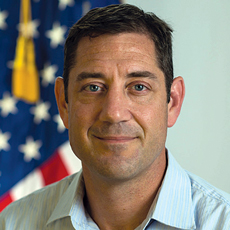
Lest you think Thanksgiving will be a time to soften some COVID-19 restrictions for residents, think again.
“The answer is no,” Evan Shulman, director of the Division of Nursing Homes for the Centers for Medicare & Medicaid Services said Thursday. “The virus does not care if there’s a holiday.”
Shulman, who spoke during the National Association of Directors of Nursing Administration in Long Term Care’s (NADONA’s) 33rd annual conference, in a virtual session sought to clarify questions related to Thanksgiving and Christmas, along with other pertinent COVID-19 topics such as testing and visitation.
Shulman, who said that CMS is considering providing more guidance regarding the holidays, noted that his agency will not let up on core mitigation principals, such as social distancing and mask wearing among residents and staff. And as much as CMS loves the idea of celebrations in nursing homes, he pushed back on the idea of holiday parties this year.
Given the known link between community spread of COVID-19 and rising cases in nursing homes, DONs also need to work with staff to make sure they are not getting together outside the facility, he said. Shulman alluded to a recent commercial he saw that spoke about the holidays as a time to get together.
“It is not the time for getting together,” he said. “We have to be very, very careful. We think nursing homes should be educating family and residents on the dangers of leaving nursing homes and encourage them to find other ways to celebrate.”
To a frequently asked question about how to handle a resident who leaves the facility and returns, he answered that providers need to be monitoring and perhaps testing such residents more frequently. And if they have been out of the facility for a prolonged period of time, a facility may want to use transmission-based precautions, such as having them stay in a single room.
Testing drivers
Shulman covered a variety of other issues related to COVID-19 during the session Thursday. Among them was testing. A frequently asked question is whether facilities should routinely test transportation providers. While emergency transportation providers do not need to be tested, nonurgent transportation providers, who frequently visit various facilities and pick up multiple residents, do, he said.
“The very nature of that job places these transportation providers at an elevated risk of being carriers of COVID-19 and potentially transmitting it,” he said.
He noted that the drivers could be tested off-site and provide documentation of the test to the facility. Or the nursing home could test the individual, and that would serve as documentation.
Survey playbook
Surveys were another area of discussion. He spoke about the new focused infection control survey as “the playbook for how surveys should be conducted,” he said.
He also noted that CMS needs to restart standard certification surveys and complaint surveys.
He emphasized that CMS during surveys is “not looking for perfection.”
If a facility cannot procure testing supplies or secure rapid testing turnaround times, as required by CMS, it should not be cited. However, it needs to document its attempts to do so.
“We want to hold the facility accountable for the things that are within their control,” he said.
Shulman pointed out that during surveys, CMS has learned about staff not adhering to COVID-19 precautions all the time. For example, they may wear personal protective equipment in the right way in resident rooms, but not in the break room.
“It only takes a small gap in our practices to transmit this virus,” he said.
He requested viewers to “hold each other accountable. Make sure your staff operate in a culture of safety, that they feel comfortable calling each other out.”
Expanding staff
Shulman also addressed an issue he has voiced concerned about previously: staffing challenges. He challenged listeners to find creative ways to attract and retain staff in an industry with available jobs. “What can we do now as an entire community … that is a giant land grab of as many staff as we can possibly get during this time that can stay past the pandemic?” he said.
Shulman said he continues to be impressed by nursing homes’ ingenuity in instituting CMS’ requirements. For example, in an effort to continue to offer visitation and activities, they have devised family parades, put room numbers on the outside of buildings, did outdoor kite flying and started six-foot bingo.
“Despite how much COVID has impacted our lives, one thing COVID can’t do is stop bingo,” he said.
At the beginning and end of the hour, he provided a heartfelt thank you to listeners from CMS.
“You’re heroes, you’re warriors, defenders. You’re saviors,” Shulman said. “It is extremely tough work, and we extremely appreciate everything you are doing.”




